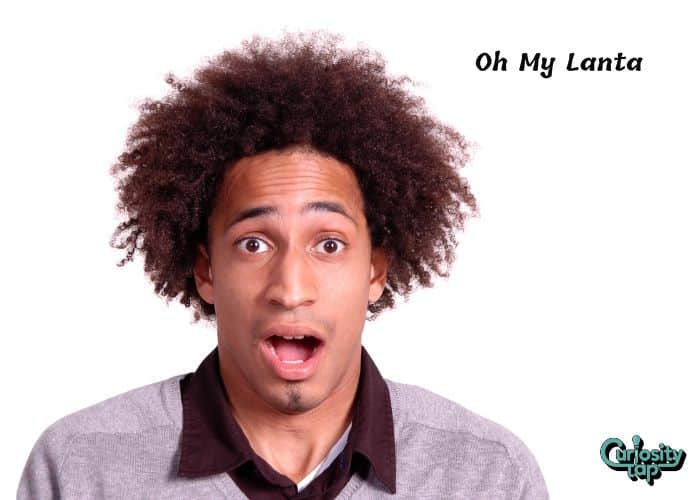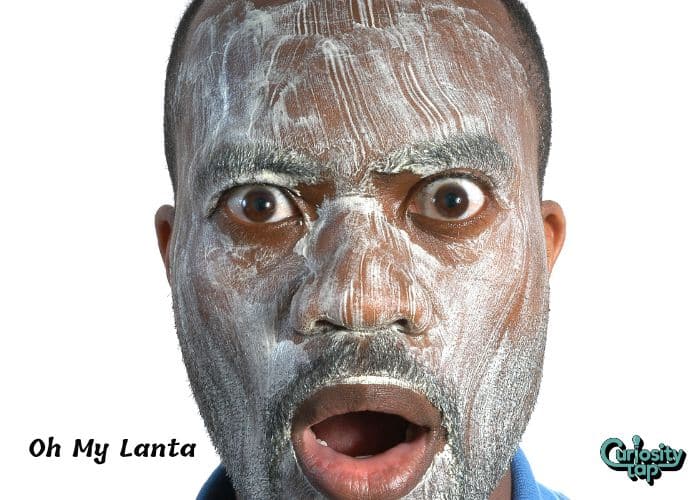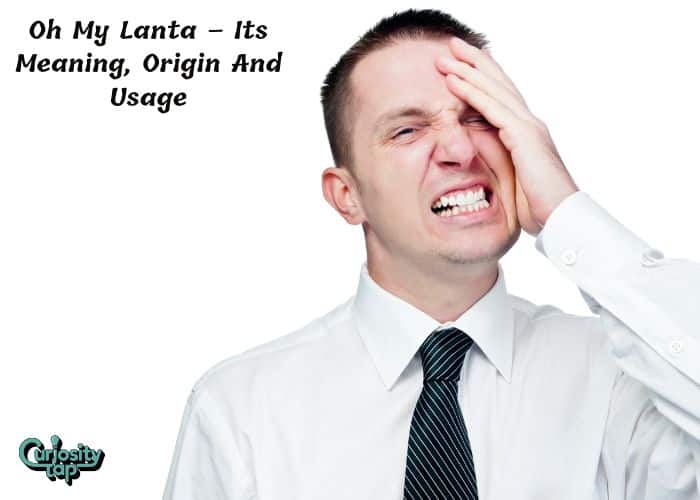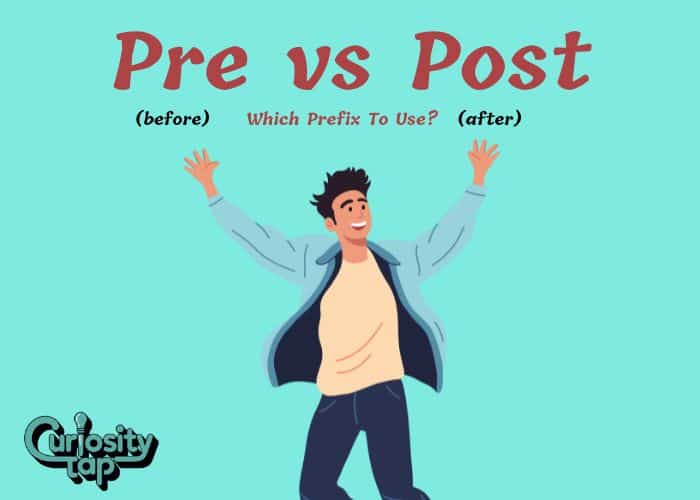Have you ever caught yourself saying “Oh my lanta” when something surprises you, only to wonder where on earth that phrase came from?
You’re not alone! This quirky 1990s expression has become a beloved part of American pop culture, bringing back waves of nostalgia for anyone who grew up watching family sitcoms.
Whether you’re a Full House fan or just someone who loves unique ways to express surprise and amazement, understanding the story behind this playful interjection will give you a whole new appreciation for this family-friendly catchphrase.
From its clever wordplay origins to its modern-day usage, “oh my lanta” represents something special in our language – a perfect blend of humor, innocence, and creative expression that continues to make people smile decades after it first aired on television.
What Does “Oh My Lanta” Actually Mean?
The oh my lanta meaning is surprisingly simple yet brilliantly crafted. This polite exclamation serves as a family-safe way to express shock, surprise, or excitement without using potentially offensive language.
At its core, “oh my lanta” functions as a euphemistic language substitute for stronger religious exclamations like “Oh my Lord” or “Oh my God.” It’s what linguists call conversational softening – taking a potentially controversial phrase and transforming it into something completely non-offensive and playful.
The phrase carries several key characteristics:
- Expresses genuine surprise or amazement in everyday situations
- Maintains a light-hearted tone that’s appropriate for all audiences
- Serves as a safe alternative to religious or profane exclamations
- Creates a nostalgic connection to 1990s pop culture
- Adds humor through its unexpected wordplay
When someone says “oh my lanta,” they’re essentially communicating the same emotional response as “wow” or “holy cow” but with a distinctive twist that immediately signals familiarity with classic American television culture.
Also Read: Scrap or Scrape: What Is The difference?
The Fascinating Origin Story Behind This Catchphrase
The oh my lanta origin traces back to the hit television series Full House, which aired from 1987 to 1995. The phrase was popularized by D.J. Tanner, the eldest daughter character portrayed by Candace Cameron Bure (originally known as Candace Cameron).
Here’s how this nostalgic catchphrase came to be:
- TV Show Connection: Full House writers created the phrase as part of D.J.’s character development
- Clever Wordplay: The phrase plays on “Mylanta,” a popular antacid brand from that era
- Family-Friendly Comedy: It perfectly fit the show’s wholesome, family-safe humor style
- Character Signature: D.J. Tanner used it as her go-to surprise phrase throughout the series
The genius behind “oh my lanta” lies in its antacid pun. The writers took the familiar medication name Mylanta and transformed it into a euphemism that sounds remarkably similar to “Oh my Lord” – creating a comedic effect that was both clever and completely appropriate for prime-time family television.
This Full House catchphrase became so popular that it transcended the show itself, becoming part of the broader cultural lexicon of 1990s expression.

How People Use “Oh My Lanta” in Real Life
Understanding oh my lanta usage means recognizing when and how this friendly exclamation fits naturally into conversations. People typically use this phrase in specific situations where they want to express strong emotions while maintaining a playful and family-friendly tone.
Common Usage Scenarios
Surprise Reactions:
- When receiving unexpected good news: “Oh my lanta, I got the promotion!”
- During surprising revelations: “Oh my lanta, I had no idea you could sing like that!”
- When witnessing impressive achievements: “Oh my lanta, did you see that basketball shot?”
Mild Frustration:
- When dealing with minor inconveniences: “Oh my lanta, I forgot my keys again!”
- During technology troubles: “Oh my lanta, this computer is acting up!”
- When facing everyday challenges: “Oh my lanta, traffic is terrible today!”
Excitement and Joy:
- When sharing good news: “Oh my lanta, we’re going on vacation!”
- During celebrations: “Oh my lanta, this party is amazing!”
- When expressing enthusiasm: “Oh my lanta, I love this new restaurant!”
Who Uses This Phrase?
The phrase appeals to several demographic groups:
- Millennials and Gen X who grew up watching Full House
- Parents looking for safe exclamations around children
- People who appreciate nostalgic references to 1990s pop culture
- Anyone seeking creative alternatives to traditional exclamations
Creative Alternatives to “Oh My Lanta”
While “oh my lanta” holds a special place in pop culture, English offers numerous alternative expressions that serve similar purposes. These polite surprise phrases can add variety to your vocabulary while maintaining the same family-safe and playful tone.
Classic Alternatives
Traditional Options:
- “Holy smokes” – expresses surprise with a vintage feel
- “Good gravy” – Southern-inspired exclamation
- “Well, butter my biscuit” – playful Southern expression
- “Jumpin’ jellybeans” – whimsical and child-friendly
Timeless Favorites:
- “Sweet sassafras” – nature-inspired exclamation
- “Land sakes alive” – old-fashioned surprise expression
- “Jiminy Christmas” – holiday-themed alternative
- “Great balls of fire” – energetic and dramatic
Modern Alternatives
Contemporary Options:
- “Oh my goodness” – widely accepted safe exclamation
- “Oh my gosh” – casual and universally understood
- “Goodness gracious” – slightly more formal yet friendly
- “Gee whilikers” – playfully old-fashioned
Pop Culture Inspired:
- “Cowabunga” – borrowed from surfer culture and Teenage Mutant Ninja Turtles
- “Zowie” – comic book-inspired exclamation
- “Hot diggity dog” – playful and energetic
- “Son of a biscuit” – humorous food-based alternative
The Cultural Impact and Lasting Appeal
The enduring popularity of “oh my lanta” demonstrates how TV show catchphrases can become permanent fixtures in our language. This non-religious blasphemy alternative has maintained its relevance for several important reasons.
Why It Continues to Resonate
Nostalgic Value: The phrase instantly transports people back to the wholesome family entertainment of the 1990s. For many, saying “oh my lanta” triggers warm memories of watching Full House with family members, creating an emotional connection that transcends mere words.
Linguistic Creativity: The clever Mylanta pun showcases the creative potential of language play. It demonstrates how everyday products can be transformed into expressions of emotion, inspiring others to create their own euphemistic language alternatives.
Universal Appropriateness: In our increasingly diverse and sensitive communication landscape, having family-safe slang options becomes more valuable. “Oh my lanta” provides a way to express strong emotions without risking offense or misunderstanding.
Modern Usage Trends
| Context | Frequency | Age Group | Purpose |
| Social Media | High | 25-45 | Nostalgic reference |
| Family Settings | Medium | All ages | Safe exclamation |
| Professional | Low | 30-50 | Humor/ice-breaker |
| Pop Culture | High | 20-40 | Cultural reference |
Practical Tips for Using “Oh My Lanta” Effectively
Incorporating “oh my lanta” into your vocabulary can add personality and warmth to your communication. However, like any distinctive phrase, it works best when used thoughtfully and appropriately.
Best Practices for Usage
Do This:
- Use it in casual, friendly conversations where humor is welcome
- Apply it when you want to express genuine surprise without strong language
- Employ it as a conversation starter with fellow Full House fans
- Use it around children as a family-friendly alternative to stronger exclamations
Avoid This:
- Using it in formal business settings where traditional language is expected
- Overusing it to the point where it loses its playful impact
- Using it with people who might not understand the cultural reference
- Applying it in serious situations where light-hearted tone would be inappropriate
Context Considerations
Perfect Situations:
- Informal social gatherings where nostalgia is appreciated
- Family conversations where you want to model appropriate language
- Social media posts that reference 1990s culture
- Casual workplace interactions with colleagues who share similar interests
Situations to Avoid:
- Formal presentations or professional meetings
- Serious conversations about sensitive topics
- International communications where cultural references might confuse
- Academic or technical writing where precision is paramount

Bonus Tip: Creating Your Own Family-Friendly Catchphrases
Here’s something most people don’t realize: you can create your own family-safe exclamations using the same creative principles that made “oh my lanta” so successful. The key lies in understanding the linguistic patterns that make certain phrases memorable and appropriate.
The Formula for Success
Step 1: Choose a Base Emotion Start with the feeling you want to express – surprise, excitement, mild frustration, or amazement.
Step 2: Find a Familiar Product or Word Look for everyday items, food names, or common objects that could serve as the foundation for your phrase.
Step 3: Create Sound-Alike Connections Find words that sound similar to traditional exclamations but maintain their innocent nature.
Step 4: Test for Natural Flow Ensure your new phrase rolls off the tongue easily and feels natural in conversation.
Example Creation Process
Following the oh my lanta model, you might create:
- “Oh my pasta” (playing on “Oh my gosh”)
- “Sweet banana” (alternative to “Sweet Jesus”)
- “Holy guacamole” (substitute for “Holy cow”)
- “Great googly moogly” (playful alternative to stronger expressions)
This creative approach allows you to develop personalized exclamations that reflect your personality while maintaining the family-friendly nature that makes phrases like “oh my lanta” so enduring.
Also Read: Goomar – Its Meaning, Origin And Usage
Expert Advice: When and How to Use Nostalgic Expressions
As a communication expert, I recommend treating nostalgic catchphrases like “oh my lanta” as valuable tools in your linguistic toolkit. They serve specific purposes and work best when used strategically rather than randomly.
Strategic Communication Benefits
Building Connections: Using Full House catchphrases can instantly create bonds with people who share similar cultural references. It signals shared experiences and can break down conversational barriers in social settings.
Maintaining Appropriate Tone: In situations where you need to express strong emotions but want to avoid potentially offensive language, euphemistic expressions provide perfect alternatives. They allow you to be genuine while remaining respectful.
Adding Personality: Playful interjections like “oh my lanta” can showcase your sense of humor and cultural awareness without being overwhelming or inappropriate.
Final Recommendations
For Regular Use: Reserve nostalgic expressions for casual conversations where they enhance rather than distract from your message. They work particularly well in:
- Social media communications
- Family interactions
- Casual workplace conversations
- Nostalgic discussions about pop culture
For Professional Growth: Understanding how phrases like “oh my lanta” function in language can improve your overall communication skills. They demonstrate the importance of tone, audience awareness, and cultural sensitivity in effective communication.
Frequently Asked Questions
What does “oh my lanta” mean exactly?
“Oh my lanta” is a family-friendly exclamation that expresses surprise, shock, or excitement. It serves as a polite alternative to stronger religious or profane expressions, functioning as euphemistic language that maintains a playful and non-offensive tone in conversation.
Where did “oh my lanta” originate from?
The phrase originated from the television series Full House, where it was used by D.J. Tanner (played by Candace Cameron Bure). The oh my lanta origin involves clever wordplay with the antacid brand Mylanta, creating a nostalgic catchphrase that became synonymous with 1990s family entertainment.
Is “oh my lanta” still used today?
Yes, “oh my lanta” continues to be used, particularly among millennials and Gen X who grew up watching Full House. It remains popular in social media, family conversations, and situations where people want to express emotions using safe exclamations that reference 1990s pop culture.
What are some good alternatives to “oh my lanta”?
Popular alternatives include “oh my goodness,” “holy cow,” “good gravy,” “sweet sassafras,” and “jumpin’ jellybeans.” These alternative expressions serve similar purposes as family-safe ways to express surprise and amazement while maintaining appropriate tone in various social contexts.
Conclusion
The meaning of “Oh my lanta” goes beyond just a quirky expression it’s a charming, nostalgic way to show surprise or excitement without stepping on any toes.
Originating from the beloved 90s sitcom Full House, this playful phrase has stood the test of time thanks to its wholesome, lighthearted vibe. Whether you’re reacting to good news or a jaw-dropping moment, “Oh my lanta” delivers the perfect mix of emotion and politeness.
It’s a fun, family-friendly alternative to more intense outbursts making it a go-to choice for keeping conversations upbeat and universally relatable.
Read more knowledgeable blogs on Curiosity Tap
Is this article helpful?

Jackson Pearson is a passionate educator and language enthusiast behind the blog Jackson Pearson. With years of experience in teaching and writing, he specializes in simplifying complex grammar rules, breaking down tricky vocabulary, and crafting learning guides that are both engaging and practical. His mission is to help readers boost their English skills whether they’re beginners or brushing up for fluency. Through every article, Jackson brings clarity, structure, and a spark of curiosity to the world of English learning.



